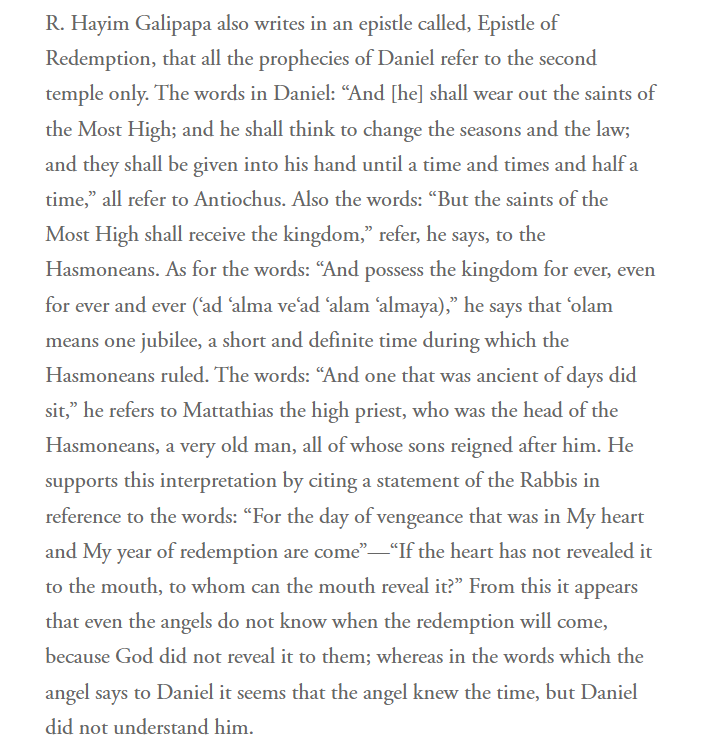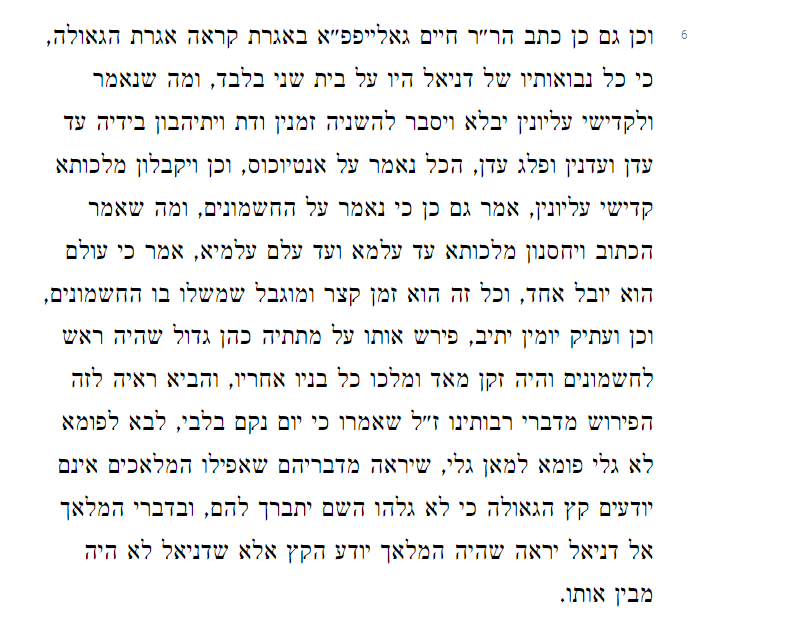Rabbi Hayyim Galipapa (15th century) interprets the Ancient of Days in Daniel 7 to be a prophecy of Mattathias the high priest.
- Type
- Book
- Source
- Rabbi Hayyim Galipapa Non-LDS
- Hearsay
- DirectReprint
- Reference
Rabbi Hayyim Galipapa in Sefer HaIkkarim Maamar 4.42.6, Sefaria, accessed February 10, 2022
- Scribe/Publisher
- Sefaria
- People
- Rabbi Hayyim Galipapa
- Audience
- Reading Public
- Transcription
R. Hayim Galipapa also writes in an epistle called, Epistle of Redemption, that all the prophecies of Daniel refer to the second temple only. The words in Daniel: “And [he] shall wear out the saints of the Most High; and he shall think to change the seasons and the law; and they shall be given into his hand until a time and times and half a time,” all refer to Antiochus. Also the words: “But the saints of the Most High shall receive the kingdom,” refer, he says, to the Hasmoneans. As for the words: “And possess the kingdom for ever, even for ever and ever (‘ad ‘alma ve‘ad ‘alam ‘almaya),” he says that ‘olam means one jubilee, a short and definite time during which the Hasmoneans ruled. The words: “And one that was ancient of days did sit,” he refers to Mattathias the high priest, who was the head of the Hasmoneans, a very old man, all of whose sons reigned after him. He supports this interpretation by citing a statement of the Rabbis in reference to the words: “For the day of vengeance that was in My heart and My year of redemption are come”—“If the heart has not revealed it to the mouth, to whom can the mouth reveal it?” From this it appears that even the angels do not know when the redemption will come, because God did not reveal it to them; whereas in the words which the angel says to Daniel it seems that the angel knew the time, but Daniel did not understand him.
- Citations in Mormonr Qnas
The B. H. Roberts Foundation is not owned by, operated by, or affiliated with the Church of Jesus Christ of Latter-day Saints.


